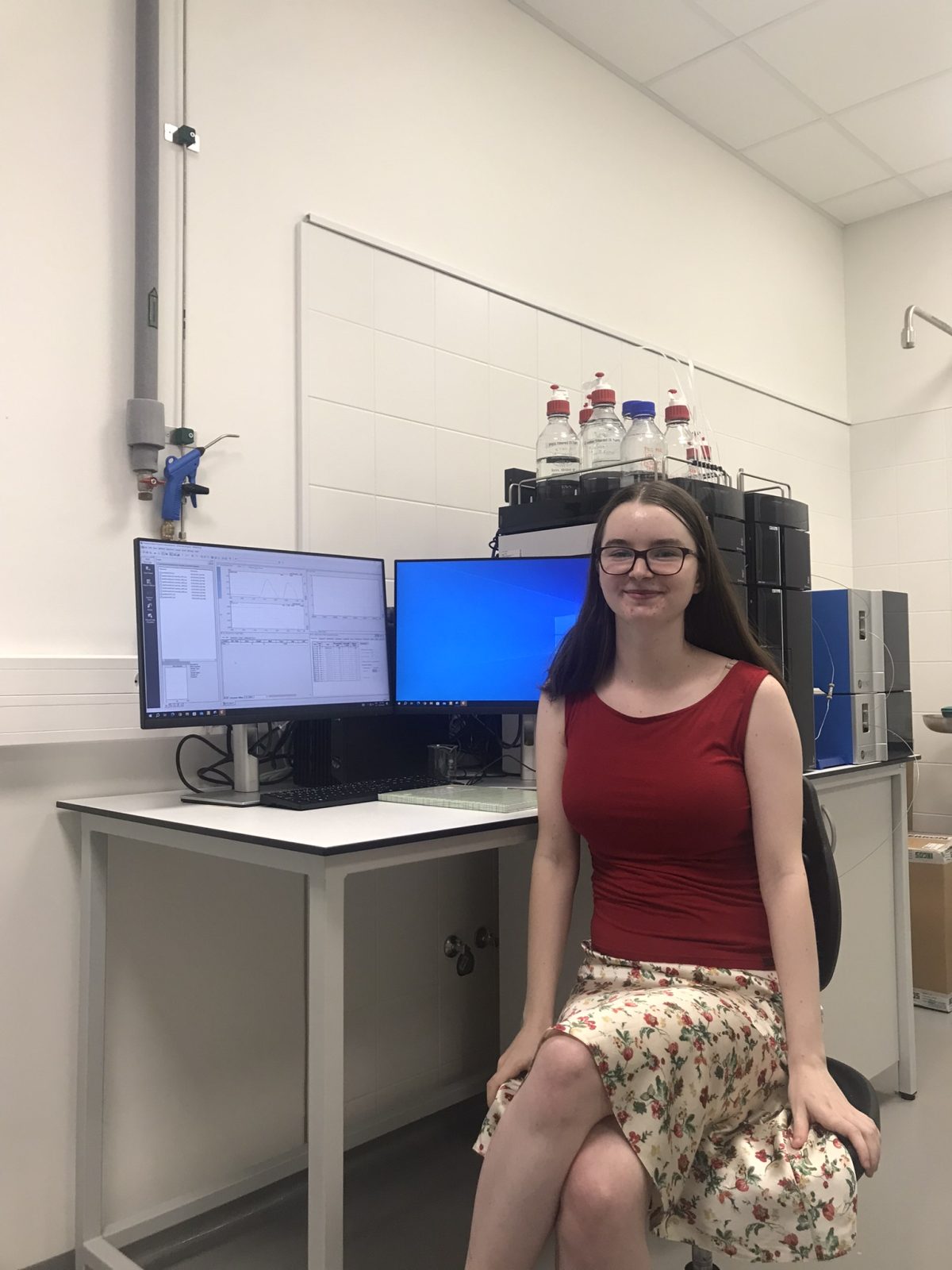Zuzana Šaterová studies Biochemistry at the University of Glasgow in Scotland and has just started her third year of her Bachelor’s degree. During her internship in the research group of Hanka Lísalová at the Institute of Physics of the CAS, she worked with an HPLC instrument, which she helped to optimise and implement in the chemistry laboratory. Together with her colleagues, she also wrote a universal manual for its use and explored the possibilities of using this technology for other experiments. This interview is a reminder of her summer internship. She had already left for Glasgow.
Why are you doing an internship in Prague when you’re studying in Glasgow?
I enjoy returning to the Czech Republic every summer to visit family and friends. I studied and lived here all my life, so I still feel drawn to this place. After my studies, I would like to come back and contribute to Czech research. This traineeship is a great opportunity to broaden my horizons, see what’s happening in different fields and lay the foundations for future collaboration.
What motivated you to choose an internship at the Institute of Physics?
While I was looking for a summer internship, I came across the Radius Centre by chance. I was intrigued by Dr. Lísalová’s group, which focuses on biosensors and polymer brushes. I applied and got accepted, which made me really excited because I wanted to gain a new experience.
Did you have any prior experience with the tasks involved in the internship, or is it all new to you?
It’s completely new to me. Previously, I had an internship in a different field, so I was a bit nervous about whether I could handle it. I knew very little about biosensors, but that made it even more interesting. HPLC is a useful and widely used technique that students don’t typically encounter at our university, so I wanted to learn more.
Do you notice any differences between the scientific environment in the Czech Republic and the UK?
So far, I don’t have much practical experience with the scientific environment in Glasgow, apart from university labs. In Czech research institutions, such as those within the Academy of Sciences, I was pleasantly surprised by how open they are to students and how they give them the opportunity to get involved in real work.
Are you satisfied with the internship?
I am extremely satisfied. There’s a lot of flexibility, and everything was always easy to arrange. I’ve been here for about a month now, halfway through the internship, and everything is going great. Everyone is very kind and willing to explain things to me, while also letting me dive straight into the work. I have significant responsibility for the HPLC manual, which is an excellent experience.
Did you have any concerns before starting the internship?
My biggest concern was not having enough information. The first few days were full of new things, but it was just about giving myself time to process it all. I wasn’t completely scared, but I approached it with humility, similar to last year when I had minimal theoretical knowledge.
Would you recommend this internship to other students?
Definitely. It’s a great opportunity to see how things work in practice and learn how to solve problems that come up in the lab. Internships aren’t that common in the Czech Republic, so people are often surprised when I talk about it. It usually starts with a simple email, but you have to be proactive and seek out opportunities.
Would you consider returning to the Institute of Physics after finishing your studies in the UK?
Completing the internship definitely encourages me even more to return to the Czech Republic. The team, where physicists, chemists, and microbiologists collaborate, is very inspiring, and I think a biochemist could have a valuable place here.

